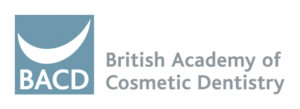Luxury or necessity? The different generational perceptions of cosmetic dentistry
The field of dentistry has come a long way in recent years when it comes to cosmetic solutions. More and more people are seeking treatments to enhance their smiles. There has been an increasing interest in orthodontics, for example, with internet searches for ‘invisible’ aligners up by around 75% in the last five years.[i] Modern society is placing increased value on physical appearance, with dental aesthetic procedures gaining prominence for their ability to complement facial beauty.[ii] However, the expectations and preferences for aesthetic dentistry can vary among different generations.
The Baby Boomers, often classified as those born between 1946 and 1964, were a generation that grew up in a time when aesthetic dentistry was not as advanced as it is today. They experienced a time when dental care was primarily focused on basic oral health rather than cosmetic enhancements.[iii] As a result, Baby Boomers may view cosmetic dentistry as a luxury rather than a necessity. While some may choose to pursue cosmetic treatments, many Baby Boomers are more motivated by maintaining their overall dental health or restoring dental function.
Generation X, born between the mid-1960s and early 1980s, witnessed the evolution of dentistry and the rise of aesthetic treatments. This generation saw the introduction of tooth-coloured restorations, which allowed for more natural-looking results.[iv] As a result, Generation X individuals tend to have higher expectations for cosmetic dentistry compared to their predecessors. They desire a smile that looks attractive and youthful, and they are more open to pursuing cosmetic treatments to achieve that goal.
Instagram influence
Millennials, born between the early 1980s and mid-1990s, are a generation that has grown up in the early digital age. This demographic group is often known for their interest in self-image and appearance.[v] Social media platforms like Instagram have contributed to the surge in interest for a perfect smile among this demographic. As a result, Millennials tend to be more proactive in seeking cosmetic dentistry.
Gen Z, born between the mid-1990s and early 2010s, is the first generation to have grown up entirely in the digital era. They are well-informed and highly influenced by social media platforms and celebrity culture. Gen Z individuals have developed an even higher level of concern about their appearance. Indeed, two-thirds of Gen Z employees feel judged and have received unwanted comments about their appearance.[vi] This generation values aesthetics more than any previous generation, and they are eager to obtain the perfect smile. They are likely to pursue cosmetic dentistry treatments at a younger age, thanks to their access to information and a heightened focus on personal image.
Cosmetic dental treatments that are popular across generations include teeth whitening, orthodontics and minimal-prep veneers. Teeth whitening is a relatively simple and non-invasive procedure. A 2020 survey found that 22% of British respondents would get their teeth professionally whitened, with a further 10% reporting that they definitely would or that they already had. In the youngest age group – 18 to 24 years of age (Gen Z), 40% of respondents reported that they probably would whiten their teeth.[vii]
According to a recent study, one third of under 35s have had a cosmetic dental procedure or treatment in the last 12 months, spending an average of £3,677. Amongst those aged 24-34, one in 10 has spent £25,000 or more.[viii]
Application in practice
It is interesting to learn that across the generations, from Boomers to Gen Z, the one thing they all have in common is that everyone prefers to visit a dental practice/dentist that has been recommended to them.[ix]
This is something that dental professionals should utilise in order to reach new patients and expand the business. How you request and record patient reviews will depend on your current and target patient demographic – perhaps using social media for younger patients and referral cards for older visitors to physically give to their family and friends. To ensure these reviews are always as positive and complimentary as they can be, it’s essential to ensure that the cosmetic dental treatments being delivered are ethical, high-quality and predictable.
This in itself is no mean feat, though it is achievable with adequate professional educational, training and support. Membership of the British Academy of Cosmetic Dentistry (BACD) provides access to all this and more, affording confidence that you are able to deliver exceptional cosmetic dentistry to patients of all ages. To take your skills to the next level, you may even consider completing the BACD Accreditation programme, which recognises clinical excellence in a comprehensive range of relevant topics from smile makeovers to indirect shade matching, minimally-invasive techniques and complex whitening.
Generational expectations and preferences for aesthetic dentistry vary based on the historical context, advancements in dental technology, and societal influences. To encourage satisfaction across all the age groups and give your practice the best chance of success, make sure your clinical skills and confidence are up to scratch.

For further enquiries about the British Academy of Cosmetic Dentistry visit

President
Luke Hutching qualified from Cardiff in 2022. He works in general practice in Hampshire, covering all aspects of dentistry. He has a particular interest delivering ethical and minimally invasive cosmetic dentistry, and is passionate in typing to improve dental health, function and aesthetics for his patients.
Luke is President of the British Academy of Cosmetic Dentistry.
His passionate about dental Education and lifelong learning and has been trained by leading experts nationally and internationally.
Outside of dentistry he’s a keen sportsman and a lifelong rugby fan.
[i] Denplan Oral Healthcare Report 2023 https://www.denplan.co.uk/content/dam/denplan/documents/denplan-oral-healthcare-report-23.pdf
[ii] El Mourad AM, Al Shamrani A, Al Mohaimeed M, Al Sougi S, Al Ghanem S, Al Manie W. Self-Perception of Dental Esthetics among Dental Students at King Saud University and Their Desired Treatment. Int J Dent. 2021 Feb 22;2021:6671112. doi: 10.1155/2021/6671112. PMID: 33679980; PMCID: PMC7925033. [Accessed January 2024]
[iii] Suarez-Durall P, Mulligan R, Enciso R. Oral health for baby boomers: Past, present, and future. Spec Care Dentist. 2023; 43: 346–358. https://doi.org/10.1111/scd.12829 [Accessed January 2024]
[iv] German, M. Developments in resin-based composites. Br Dent J 232, 638–643 (2022). https://doi.org/10.1038/s41415-022-4240-8[Accessed January 2024]
[v] National Public Radio https://www.npr.org/2017/06/04/531051473/the-millennial-obsession-with-self-care
[vi] Milk Round report https://www.milkround.com/advice/two-thirds-of-gen-z-employees-feel-judged-on-their-appearance
[vii] Statista https://www.statista.com/statistics/1132103/opinion-on-teeth-whitening-in-great-britain-by-age/
[viii] Zargaran D, Zargaran A, Terranova T, Davies j, Weyrich T, Mosahebi A, Profiling UK injectable aesthetic practitioners: A national cohort analysis.Published:July 03, 2023DOI:https://doi.org/10.1016/j.bjps.2023.06.057 [Accessed January 2024]
[ix]Harshavardan E, Sindhu R, Savitha S, Prabu D, Raj Mohan M, Bharathwaj V V, Dinesh Dhamodhar, Sathiyapriya S Analyzing the generational perception shift towards dentistry: differences in opinion between gen z, millennials, gen x, baby boomers and traditionalist, 5 May 2022, International Research Journal of Modernisation in Engineering, Technology and Science www.irjmets.com/uploadedfiles/paper/issue_5_may_2022/24843/final/fin_irjmets1654271071.pdf












